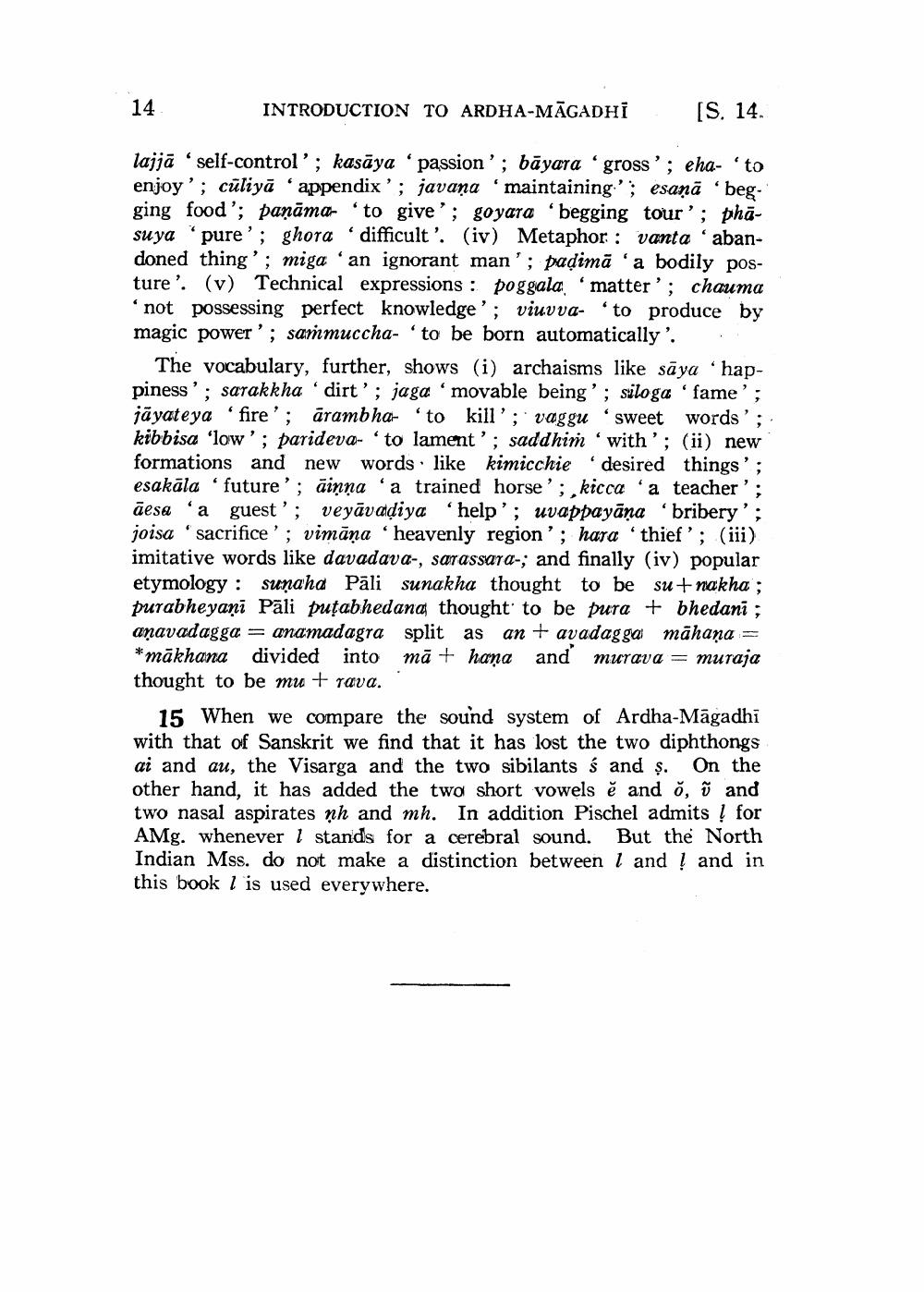________________
14
INTRODUCTION TO ARDHA-MĀGADHI
(S. 14.
lajjā 'self-control'; kasāya 'passion'; bāyara 'gross'; eha- 'to enjoy'; cūliyā 'appendix '; javaņa ‘maintaining'; esaņā 'begging food '; panāma-'to give'; goyara 'begging tour'; phāsuya pure'; ghora difficult'. (iv) Metaphor : vanta 'abandoned thing'; miga 'an ignorant man'; padimā 'a bodily posture'. (v) Technical expressions : poggala 'matter'; chauma 'not possessing perfect knowledge'; viuvva- 'to produce by magic power ' ; sammuccha- 'to be born automatically'.
The vocabulary, further, shows (i) archaisms like saya 'happiness'; sarakkha dirt'; jaga 'movable being'; siloga 'fame'; jāyateya fire'; ārambha- 'to kill'; vaggu 'sweet words';. kibbisa 'low'; parideva- 'to lament'; saddhim with’; (ii) new formations and new words like kimicchie desired things'; esakāla “future'; āinna 'a trained horse';, kicca 'a teacher'; āesa 'a guest'; veyāvadiya 'help'; uvappayāņa bribery'; joisa 'sacrifice'; vimāņa “heavenly region’; hara thief'; (iii) imitative words like davadava-, sarassara-; and finally (iv) popular etymology : sunaha Pāli sunakha thought to be su + nakha ; purabheyaņi Pāli puțabhedana thought to be pura + bhedani ; anavadagga = anamadagra split as an + avadaggai māhana = *mākhana divided into mā + hana and murava = muraja thought to be mu + rava.
15 When we compare the sound system of Ardha-Māgadhi with that of Sanskrit we find that it has lost the two diphthongs ai and au, the Visarga and the two sibilants ś and ș. On the other hand, it has added the two short vowels ě and ;, û and two nasal aspirates ạh and mh. In addition Pischel admits ! for AMg. whenever I stands for a cerebral sound. But the North Indian Mss. do not make a distinction between 1 and ! and in this book 1 is used everywhere.




